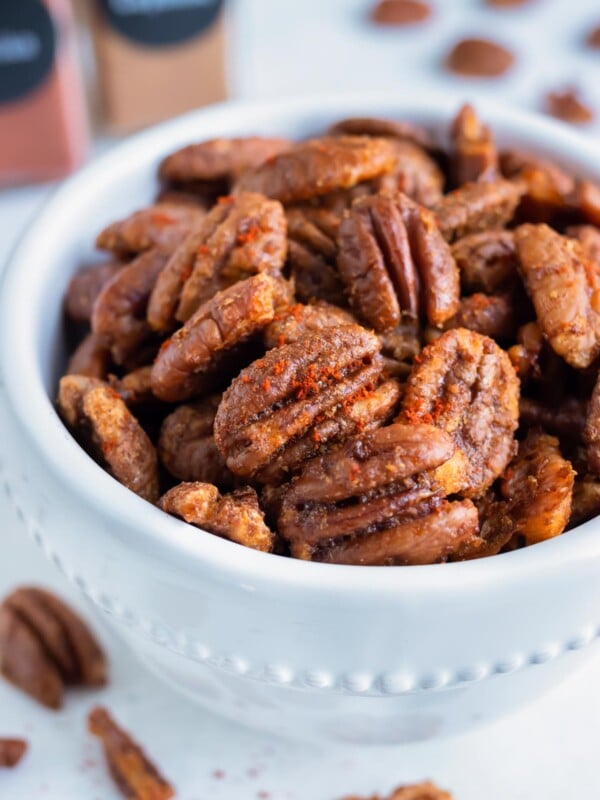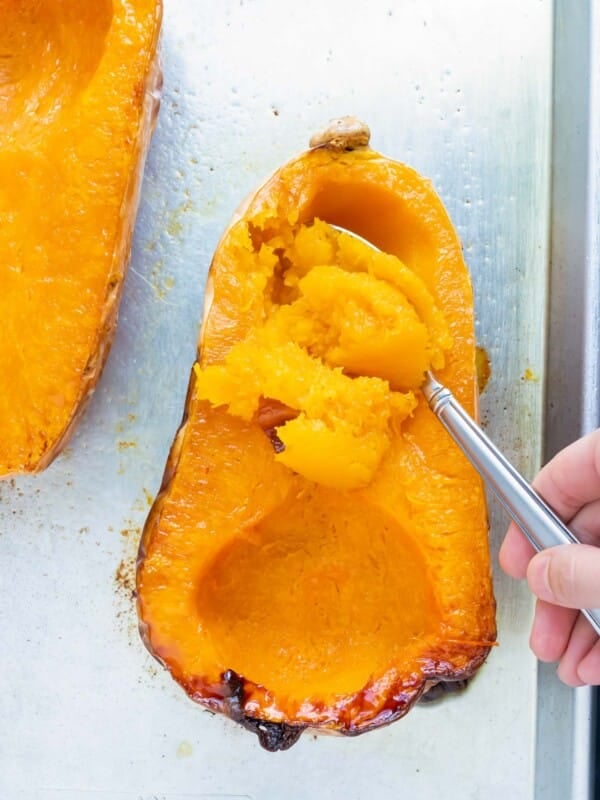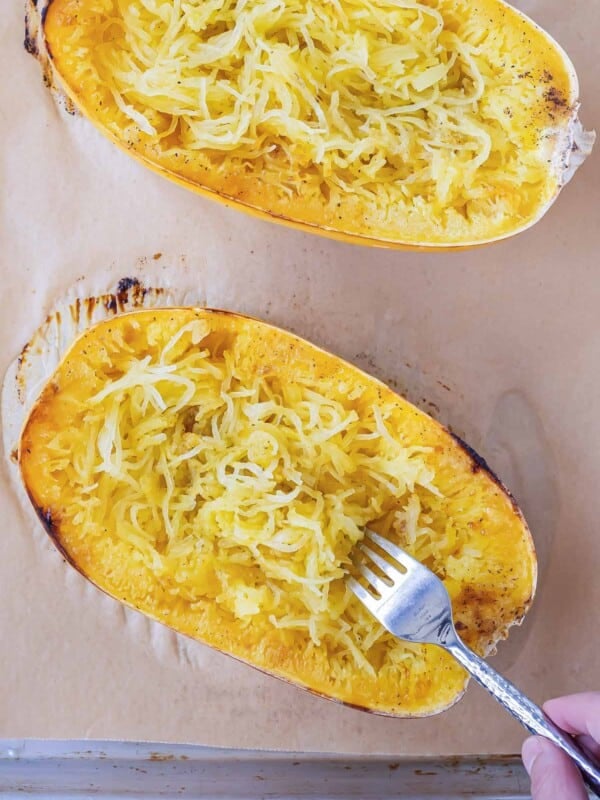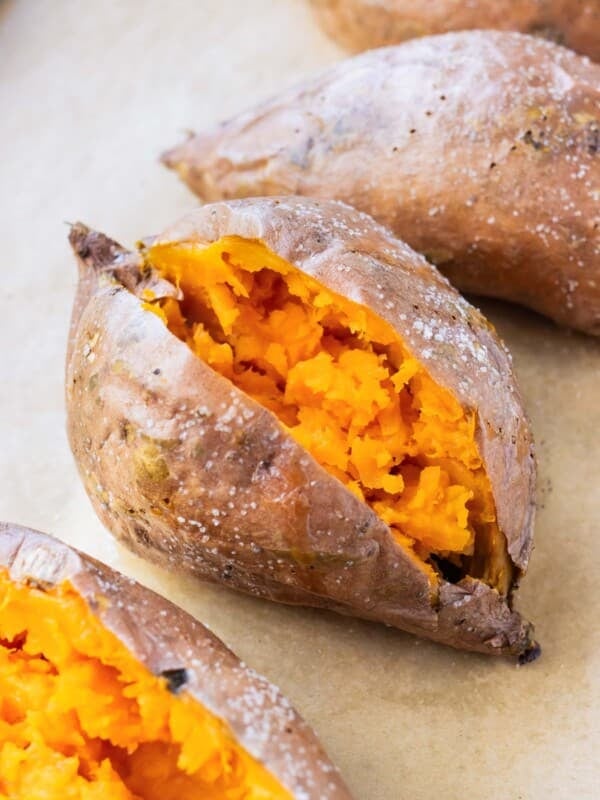Trying to find a white wine vinegar substitute? You’re in the right place because here are TEN substitutes that have similar flavor profiles to white wine vinegar. Try out the recipes near the end that call for all different types of vinegar to give you the distinct seasoning you’re looking for!
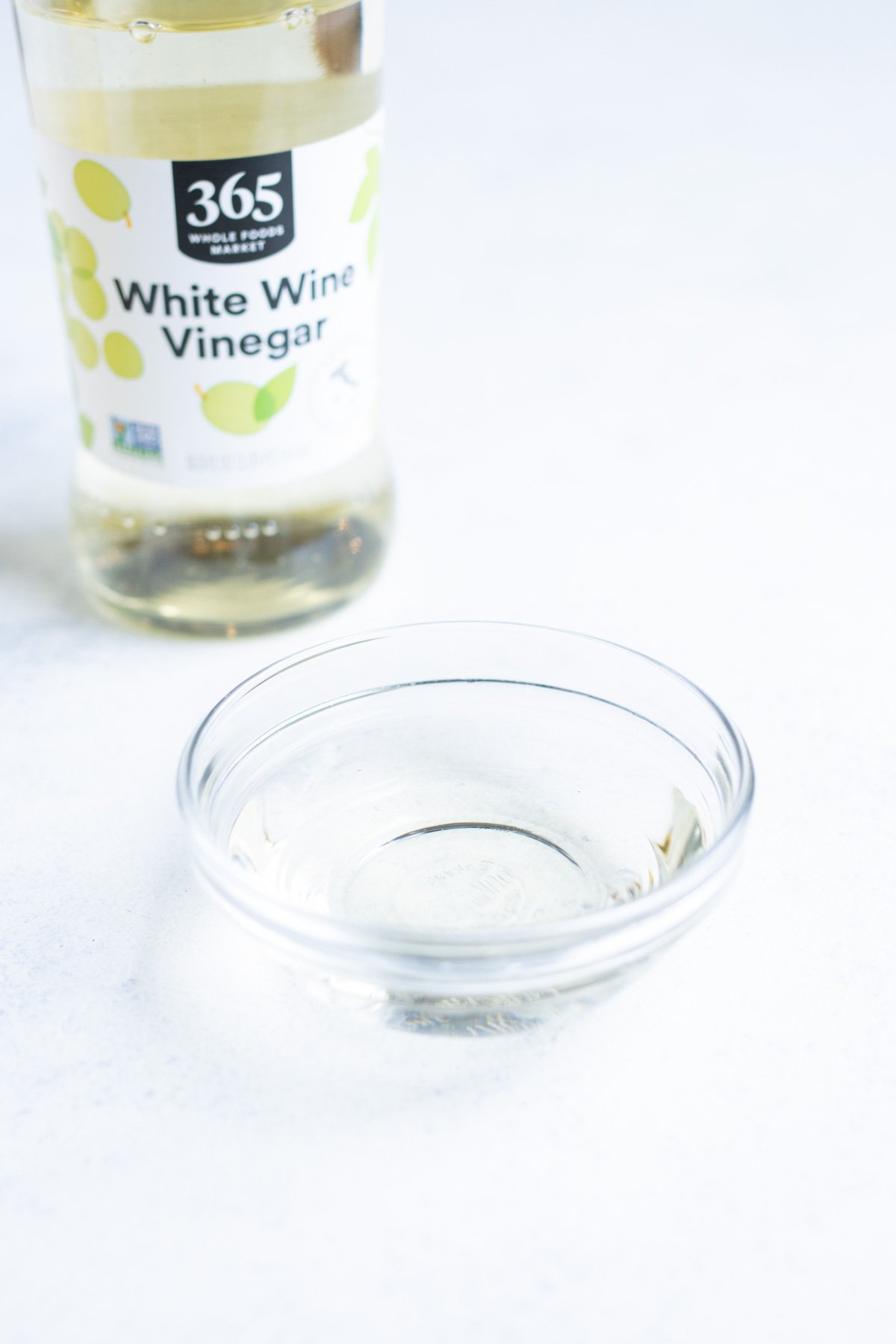
What is white wine vinegar?
White wine vinegar is a clear vinegar that is strong, sweet, and made from white wine. Grape skins are removed before the fermentation process in wooden barrels. The skinless grapes form a white wine. As it further ferments, it turns into a transparent white wine vinegar.
White wine vinegar is best used in salad dressings. The best substitute for it needs to share the same qualities: a sweet flavor and a less acidic taste.
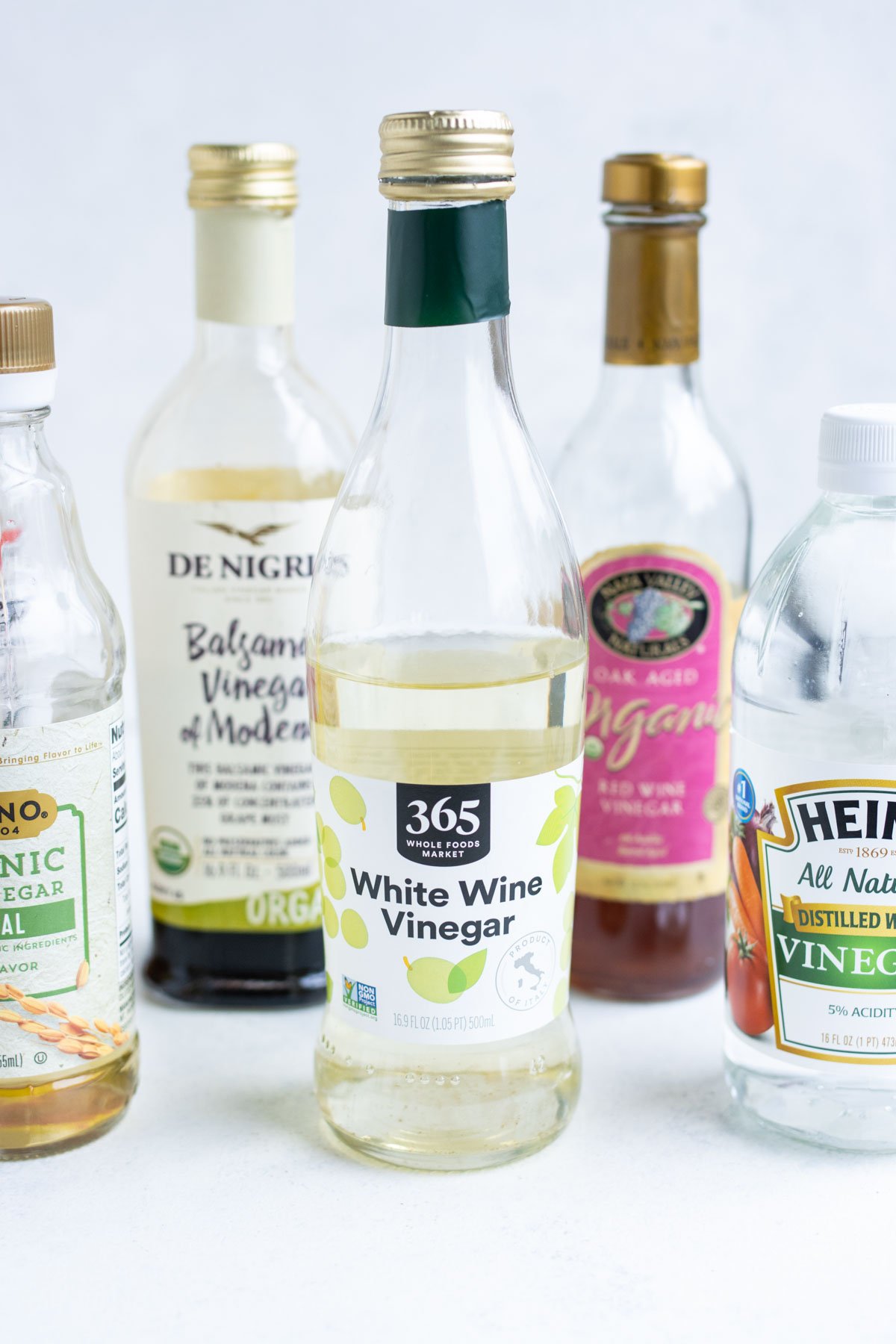
The Best White Wine Vinegar Substitutes
These substitutes break down each flavor profile, and help you know how much to put in your recipes when replacing with white wine vinegar:
1. Champagne Vinegar
If you can’t find white wine vinegar at your nearest grocery store, then champagne vinegar is a great substitute. It has a similar flavor profile, even though it’s slightly milder. Use ½ more than what the recipe calls for on this one.
2. White Wine
If you have white wine on hand, this would be a good substitute. It does not have a tangy flavor since it is a wine and not a vinegar, so double what the recipe calls for. This is best used for cooking, so make sure you let the alcohol cook out to maximize flavor.
3. Sherry Vinegar
Sherry vinegar has a softer flavor, but it adds the right amount of acidity to your dish, just like white wine vinegar. This type of vinegar is darker in color, though, so it will only make a difference in presentation, for example, in white sauces. You can use the exact amount that the recipe calls for.
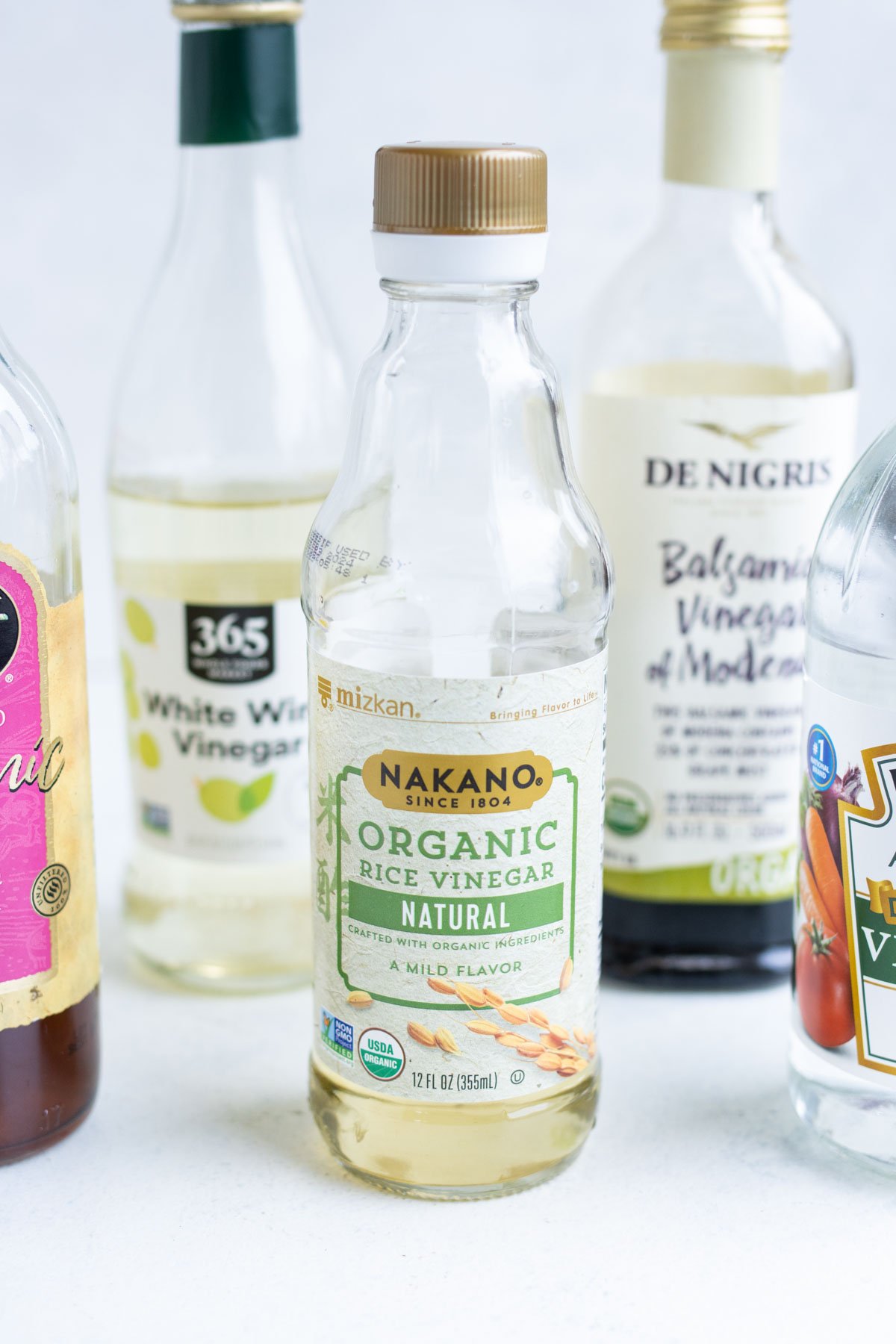
4. Rice Wine Vinegar
Rice wine vinegar is an excellent white wine vinegar replacement especially when being used in Asian cuisine. It’s close in color and acidity level, so you can use equal amounts of rice wine vinegar when substituting.
5. Red Wine Vinegar
Red wine vinegar has a stronger flavor than white wine vinegar, but it is similar because it is also made from wine. Remember that it is completely opposite in color, so it will change the color in recipes like dressings. Use the same amount of vinegar that the recipe calls for.
6. Apple Cider Vinegar
Apple cider vinegar has its own unique flavor and is on almost every person’s kitchen shelf. It can be quite sour, so you should definitely taste as you go. Because of this, use ½ of the amount the recipe calls for.
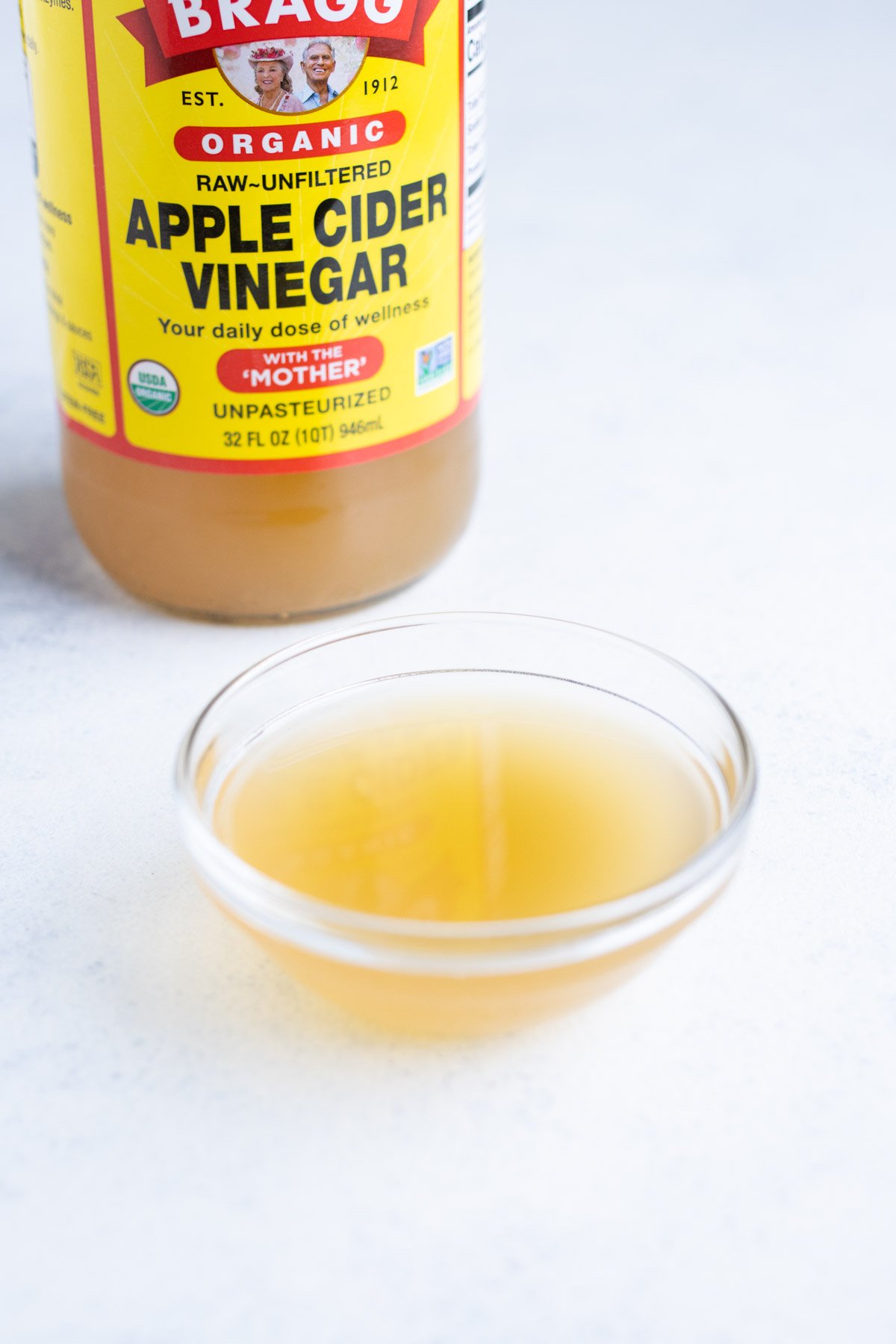
7. Balsamic Vinegar
Balsamic vinegar can be a suitable replacement for white wine vinegar, especially if you love the fruity, rich taste. The final product with this one can change drastically depending on how much you use, so add a splash in and taste as you go. The color and consistency may change since balsamic vinegar is thicker and darker.
8. Lemon Juice
Citrus juice is an excellent substitute because it offers a tangy taste and acidic flavor that white wine vinegar adds. You’ll want to use ½ the amount of lemon juice than what the recipe call for with this one, and dilute it with the same proportion of water. Squeeze in more lemon juice if you aren’t satisfied!
9. Water
Surprisingly, water can be an ideal substitute because it gives you the liquid your dish needs. Add ¼ less than what the recipe calls for, so your dish is not dry. Add extra sprinkles of any herbs or spices the recipe calls for to add more flavor.
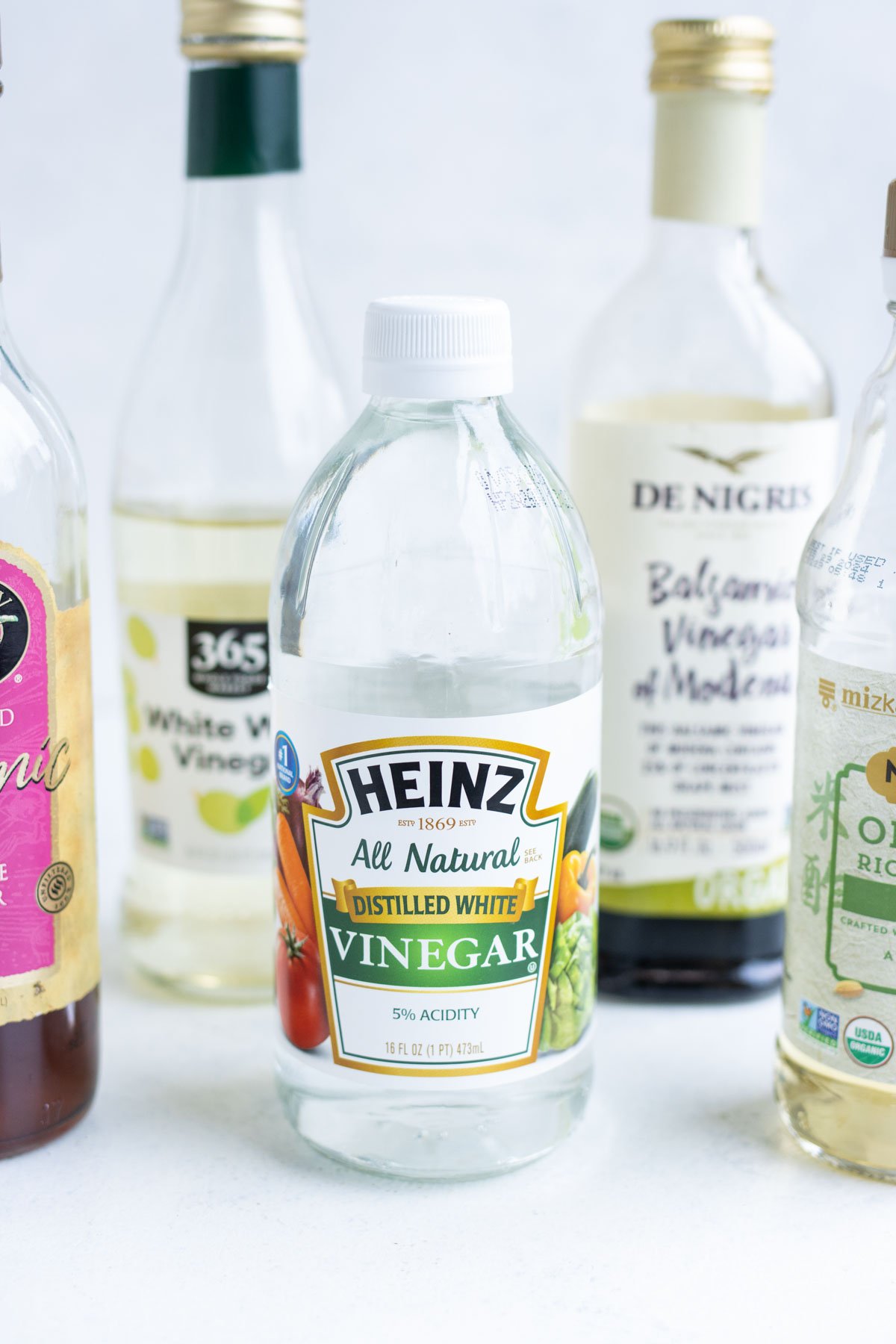
10. White Vinegar
White vinegar should be your last resort because it is intensely acidic, and one of the strongest vinegars. With this substitute, you’ll need to use less than what the recipe calls for in addition to a pinch of sugar since white wine vinegar is sweeter. For every tablespoon of white wine vinegar, use ¾ tablespoon of white vinegar with ¼ tablespoon of water.
White Wine Vinegar Nutrition
According to the U.S. Department of Agriculture, white wine vinegar does not have any nutritional value or health benefits. This means that it’s perfect for any diet, and it won’t harm or hurt you.
On the other hand, white wine vinegar has an acetic acid level reaching up to 10%. This is significant because most vinegars have a 5%-7% level of acetic acid. Understanding this will help you choose which vinegar is best for you in the following list of substitutes.
Deciding on which vinegar to substitute in your recipe depends on the components of each vinegar substitute. Here’s a list to guide you in using the right kind of vinegar:
For recipes where you’re making a white sauce, do not use any vinegar replacement that is dark in color like red wine vinegar, balsamic vinegar, and sherry vinegar. Instead, use these vinegars for marinades, as they work great for meat dishes.
If you are cooking Asian dishes, then rice wine vinegar is the best substitute since it’s so common in Asian cooking. Rice wine vinegar is also great for light-colored sauces.
For darker salad dressings, reductions, and sauces, balsamic vinegar is your best bet if you don’t mind the bolder flavor.
Lemon juice is best used in fish and chicken dishes along with salad dressings.
Apple cider vinegar is often a base ingredient for marinades and dressings that involve fish and chicken.
Additional Vinegar Resources
If you’re looking to learn all things vinegar, check out these posts:
- 11 Most Common Types of Vinegars
- Best Apple Cider Vinegar Substitutes
- The Best 11 Rice Vinegar Substitutes
- Health Benefits of Apple Cider Vinegar
- Top 5 Lemon Juice Substitutes
- Balsamic Vinegar Substitutes
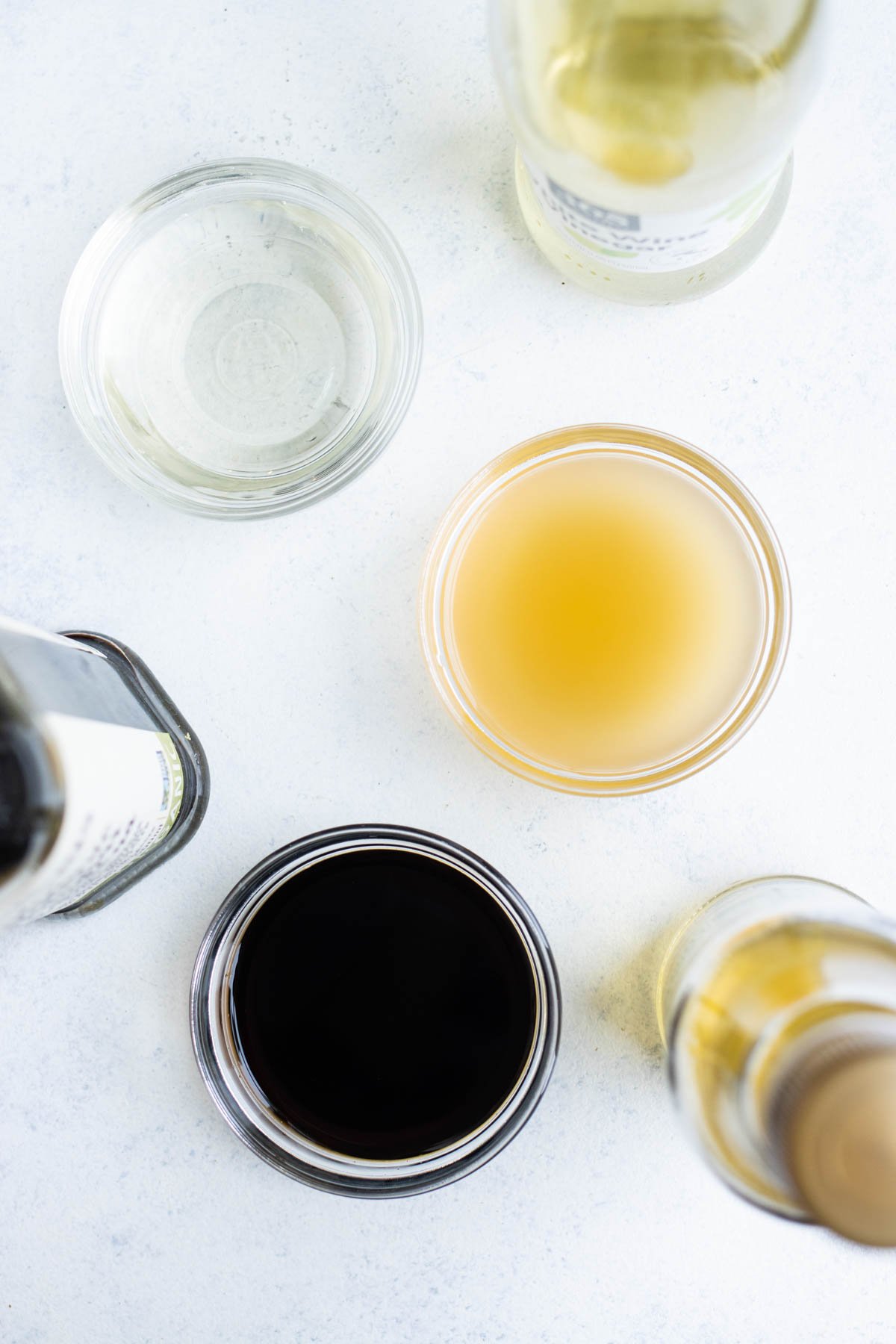
The Best Vinegar Recipes
You can use many of the vinegars you already have on hand (even as substitutes!) with these recipes:


